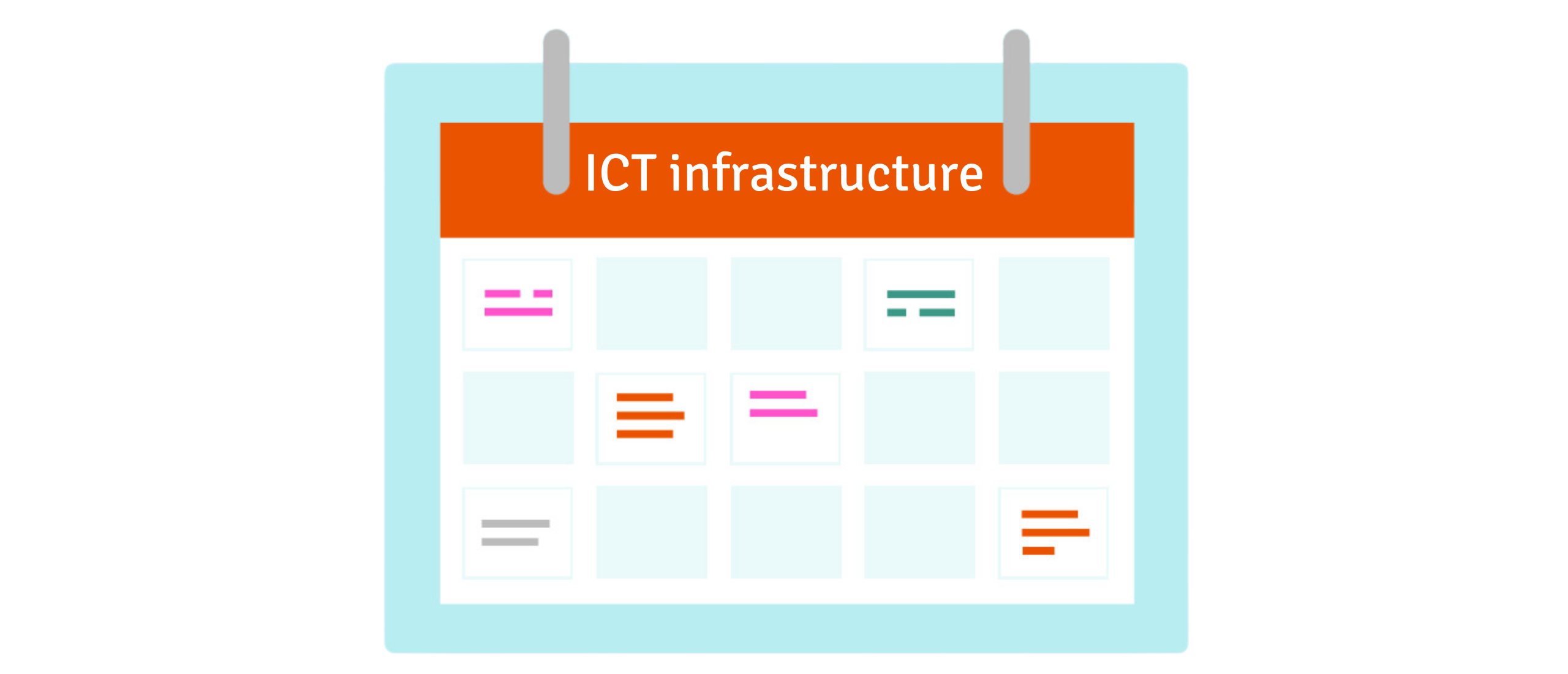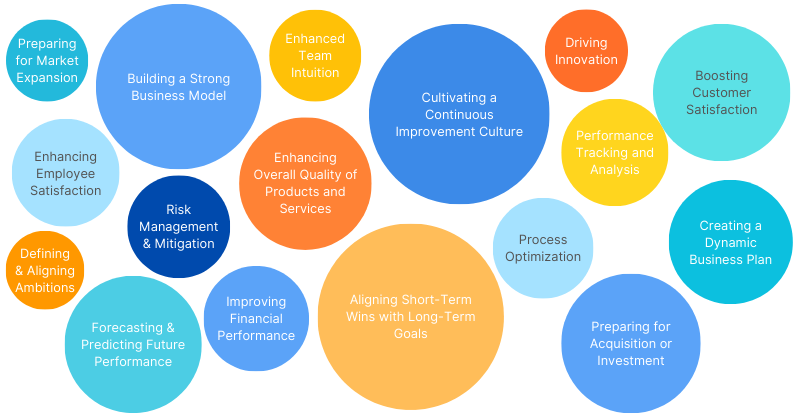
What is an ICT infrastructure?
Master Your Purpose. Own Your Freedom. With ICR.
ICT infrastructure refers to the collection of hardware, software, networks, data centers, facilities, and related equipment required to provide information technology and communication services within an organization. It includes all physical and virtual resources used to deliver IT services, such as servers, storage devices, network components, security systems, operating systems, applications, and cloud computing resources.
ICT stands for Information and Communication Technology and is a field focused on information systems, telecommunications, and computers. This includes the development and management of systems, networks, databases, and websites.
A well-designed and managed ICT infrastructure enhances business process efficiency through automation, quick access to information, and effective communication among employees. Additionally, a reliable ICT infrastructure ensures that critical systems and services are always available, minimizing downtime and ensuring business continuity even during failures or disasters.
Moreover, modern ICT infrastructure enables quick scaling up or down depending on the organization’s needs. This is crucial for rapidly growing businesses or those experiencing seasonal demand fluctuations. A robust ICT infrastructure also includes advanced security measures to protect data from cyber threats, unauthorized access, and data loss, helping organizations comply with regulations and protect customer privacy.
Although the initial investment in ICT infrastructure can be high, automation leads to significant long-term cost savings. Through virtual servers, cloud computing, and other technologies, organizations can optimize their IT costs and reduce operational expenses. Organizations with advanced ICT infrastructure can also innovate faster, bring new products and services to market more quickly, and better respond to customer needs, providing a competitive edge in a rapidly changing market.
Modern ICT infrastructure facilitates effective communication and collaboration both within and outside the organization. Tools like email, instant messaging, video conferencing, and collaborative platforms such as Slack and Microsoft Teams enable seamless interaction among employees, regardless of their location. Additionally, a good ICT infrastructure allows for effective management and analysis of large amounts of data. This helps organizations gain insights, make data-driven decisions, and improve their strategic planning.
Furthermore, organizations enhance customer satisfaction by offering reliable and efficient ICT services. Fast response times, 24/7 service availability, and secure transactions contribute to a better customer experience. A solid ICT infrastructure forms the foundation for technological innovations within an organization, enabling the implementation and utilization of new technologies such as artificial intelligence, machine learning, the Internet of Things (IoT), and big data analytics.
Thus, ICT infrastructure plays a crucial role in modern business operations. It is the backbone of an organization, ensuring smooth daily operations, achieving strategic goals, and preparing the organization for future challenges and opportunities.
Sustainable success through controlled and manageable growth
The ICR Growth & Success SaaS Platform helps people and organizations find balance and peace, through controlled and manageable growth, with the aim of a healthy and sustainably successful organization. We do this through the all-encompassing ICR Cycle.
Being inControl in this process from ambition to result is crucial. Within the ICR Cycle, inControl actually means controlled and manageable growth. The dashboard gives you insight into the current status. In the video below you can see how the dashboard transforms from the moment you start using ICR.
With our 4 ICR subscription options, you can decide for yourself when to fully engage with the entire ICR Cycle. Choose our successful approach and start your process 'from ambition to result' with the more than affordable ICR Ambition Refresher subscription.
General applications of the ICR Growth & Success SaaS Platform
The ICR Growth & Success SaaS Platform addresses a wide range of business needs, making it a versatile tool for organizations striving for sustainable success. Below is an overview of its general applications, along with the added value it provides for businesses and organizations.
Learn more about the general applications of the ICR Growth & Success SaaS platform.


